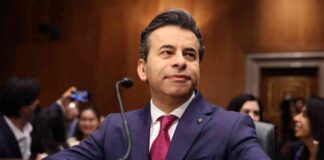Robert F. Kennedy Jr.’s recent rise in the political arena has sparked concerns among health leaders and GOP members. Kennedy’s potential involvement in a winning president’s team and his aspirations for a top health care role have raised alarm bells within the industry. His history of vaccine skepticism has led many to worry that his influence could undermine genuine health care goals and previous successes in the field.
During the recent STAT Summit, former Trump White House official Joe Grogan expressed concerns about the impact of Kennedy’s involvement on health policy goals. While some in the industry support Kennedy’s calls for public health reform, others are deeply troubled by his anti-science philosophy and disregard for scientific facts. The fear is that individuals like Kennedy could pose a serious threat to public health if given influential roles in government.
Kennedy’s past vaccine theories and skepticism have also caused unease among health officials and advocacy groups. The erosion of trust in vaccines and medicines, coupled with recent outbreaks of preventable diseases like measles and mumps, has heightened concerns about the spread of misinformation and its impact on public health.
Despite some support for Kennedy’s focus on chronic health issues, many are wary of his involvement in shaping health policy due to his controversial views on vaccines and science. The messenger, in this case, is just as important as the message itself, and Kennedy’s polarizing stance on vaccines has created divisions even among former Trump officials and Republicans.
As the debate around Kennedy’s role in the Trump administration continues, there is a growing emphasis on addressing chronic health issues and promoting transparency in public health agencies. While some industry figures are cautiously engaging with the discussion, others are distancing themselves from Kennedy’s controversial views and focusing on their work in developing life-saving medicines.
Looking ahead, the focus remains on advancing public health, promoting scientific facts, and ensuring that government policies are based on evidence-based research. The ongoing dialogue surrounding Kennedy’s potential influence highlights the importance of maintaining trust in public health institutions and upholding the integrity of scientific research in shaping health care policies. As the political landscape continues to evolve, the need for a balanced approach to health policy remains paramount to safeguarding public health and well-being.


















